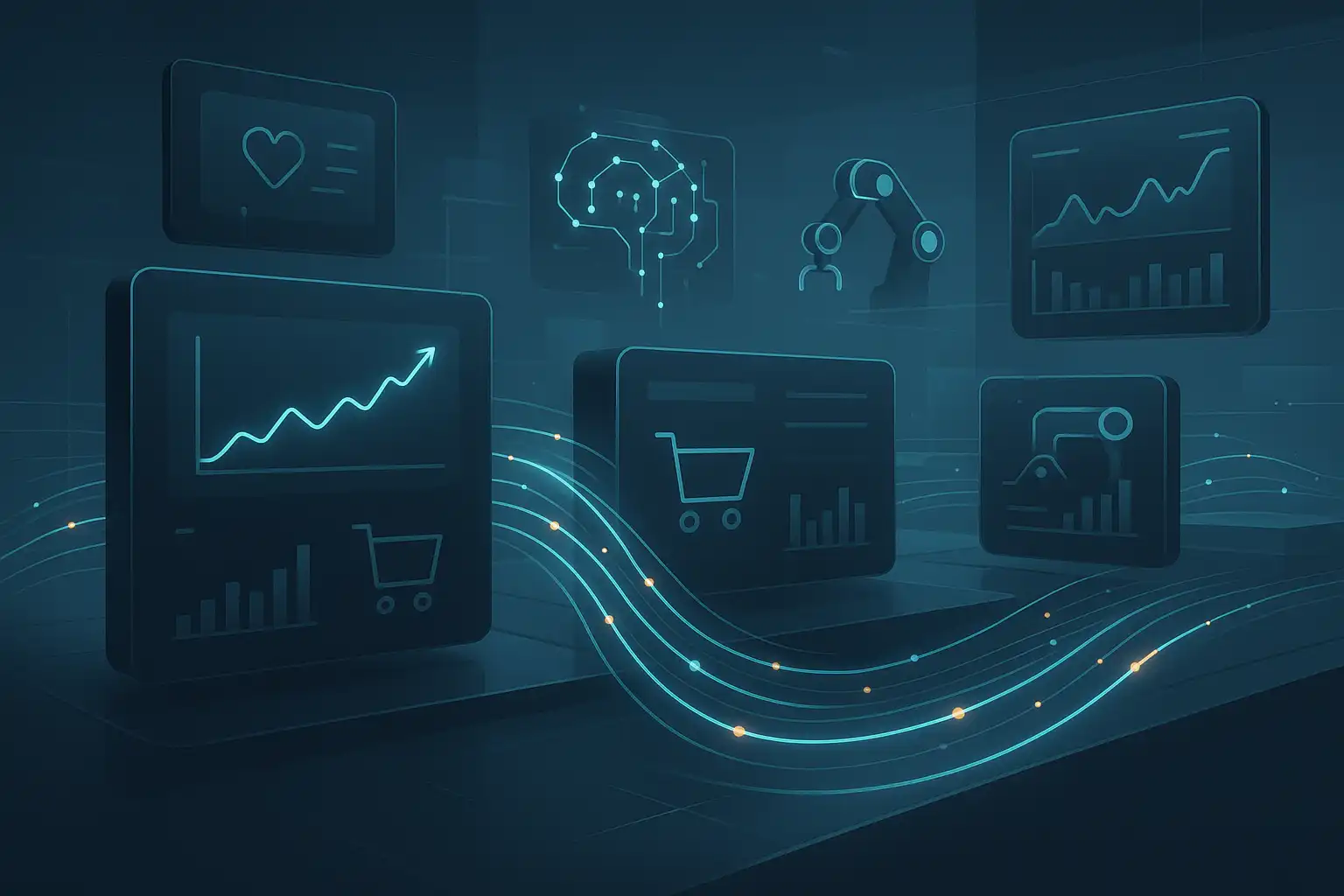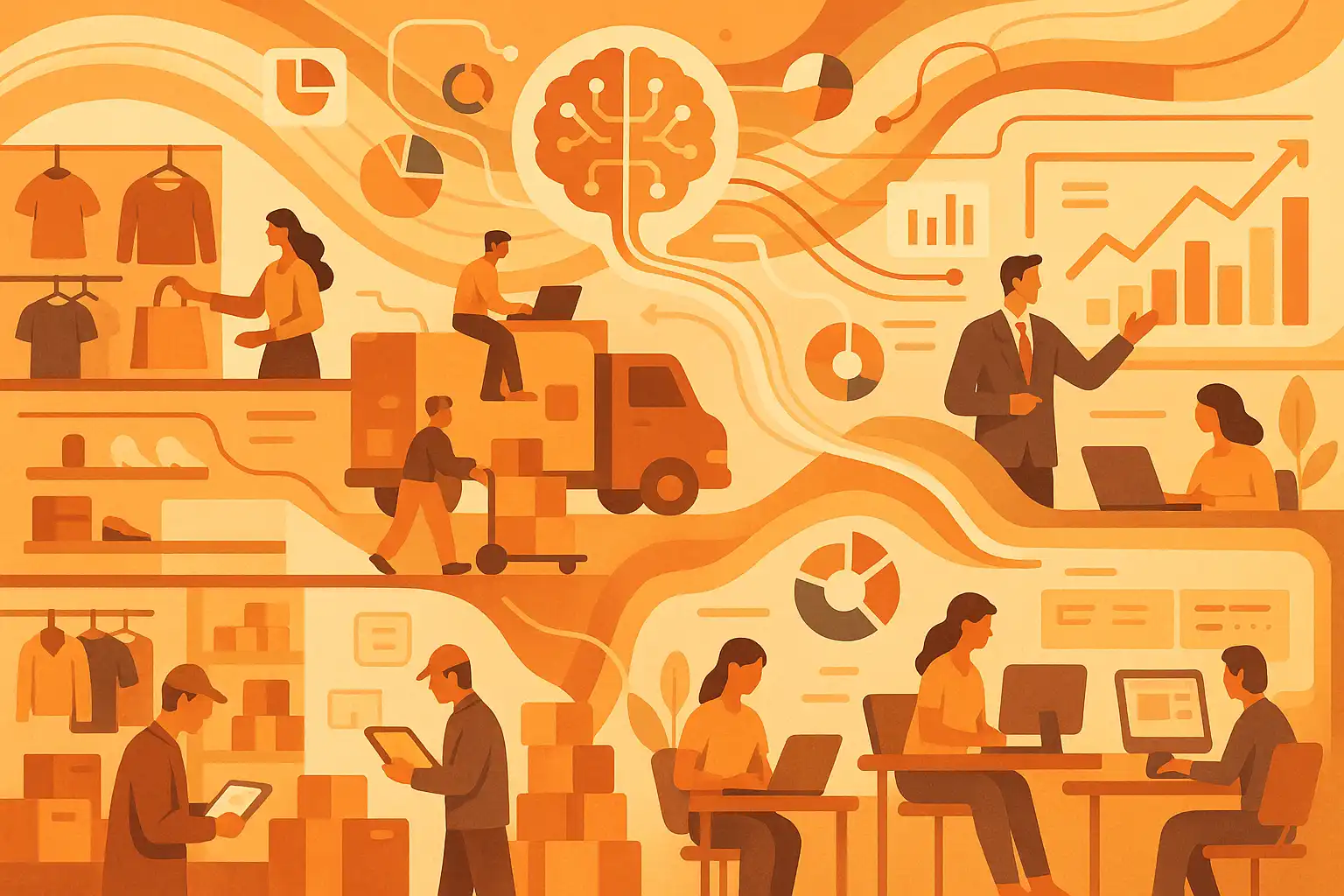
AI powered business intelligence is transforming how organizations gain insights and make decisions. Right from the start, these new technologies deliver real-time analysis as data arrives, so leaders can respond faster than ever. By using artificial intelligence within business intelligence tools, teams no longer wait days for reports or struggle with historical data alone. Instead, they access actionable insights the moment trends, risks, or opportunities emerge. This agility helps organizations stay ahead, improve efficiency, and make smarter choices. Let’s explore how AI powered business intelligence works, why it matters, and how companies can use it to drive growth.
What Makes AI Powered Business Intelligence Different?
The biggest shift with AI powered business intelligence is moving from reactive to proactive analytics. Traditional business intelligence tools often focus on the past. They collect and organize historical data, then let users ask questions or run reports. The process is slow and sometimes outdated by the time decisions are made. In contrast, AI analyzes data as it’s generated. This real-time approach means companies see patterns, forecast trends, and get alerts instantly, not after the fact.
For example, a retail manager can use AI powered tools to spot product sales spikes as they happen. This lets them adjust promotions or inventory quickly, rather than reacting weeks later. In the distribution sector, AI business intelligence platforms can track delivery routes live, optimizing logistics and reducing delays. In both cases, the organization responds to what’s actually happening, not only what happened last month.
Key Features of Modern AI Business Intelligence Platforms
- Real-time data processing: Data is analyzed immediately upon arrival.
- Predictive analytics: AI models look ahead, highlighting likely outcomes.
- Automation: Routine tasks like data cleaning, combining sources, and report creation are handled automatically.
- Personalized dashboards: Different roles access insights tailored to their needs, from executive overviews to specific sales or supply chain data.
- Actionable alerts: The system notifies teams about urgent trends or risks as soon as they appear.
By reducing manual steps and automating much of the analytics, organizations can move from data to action in minutes, not days.
How Does AI Powered Business Intelligence Drive Faster Decision Making?
Faster decision making comes from the ability to process complex data in real time and turn it into simple, practical advice. AI algorithms scan huge volumes of data, recognize patterns, and even make predictions. For instance, sales teams can use AI predictive analytics for sales insights, understanding not just what’s selling now but what will likely sell next week. Marketing teams receive automated recommendations for campaigns, while finance gets daily updates on cost trends.
If you want your business to operate more efficiently, you can explore AI-powered business efficiency services that leverage instant insights for better outcomes. These advanced platforms support everyone in the organization, not just data experts. With natural language queries, users can ask questions like, “What’s causing our drop in customer retention?” and get clear, data-backed answers instantly.
Advantages Over Traditional BI Tools
- Speed: Data updates and analysis are immediate, so decisions are always based on the latest facts.
- Proactivity: AI alerts teams to issues before they become big problems, allowing preventive action.
- Personalization: Insights are tailored to each role, so sales, marketing, and operations all get relevant data.
- Scalability: AI can handle data from many sources and vast volumes without slowing down.
Crucially, these benefits lead to smarter, faster business moves in competitive environments, especially when markets shift quickly or customer needs change overnight.

What Steps Are Needed to Implement AI Powered Business Intelligence?
Successfully adopting AI powered business intelligence involves a few key steps, but the rewards are well worth the effort. Here’s how businesses usually proceed:
- Assess existing data systems: Understand what data you collect and where it’s stored, from ERP systems to marketing platforms.
- Choose an AI-driven BI platform: Select a solution that integrates with your systems and supports real-time analytics. Options include both cloud-based and on-premise platforms.
- Integrate your data sources: Connect your data, whether it’s sales, operations, customer feedback, or supply chain metrics.
- Set up automation: Automate tasks like reporting, dashboard updates, and alerts. This reduces manual work and increases accuracy.
- Customize dashboards: Tailor dashboards for each role so users see the most relevant information.
- Train users: Make sure everyone knows how to ask questions and use the new system to its full potential.
Throughout this process, companies can use AI-powered churn detection solutions to spot at-risk customers and take action sooner. This proactive approach turns insights into real business impact, boosting growth and retention.
Common Challenges and Solutions
- Data quality: Ensure that the data feeding your AI tools is accurate and complete. Automating data cleaning helps.
- Change management: Staff may be used to old processes. Offer training and highlight the benefits of faster, easier insights.
- Integration: Choose tools that work with your existing technology to avoid costly replacements.
To overcome these challenges, some organizations rely on automated reporting for accurate and timely insights, ensuring everyone has access to up-to-date, trustworthy information.
How Do Different Industries Use AI Powered Business Intelligence?
Many industries have started to use AI powered business intelligence, but each applies the technology in unique ways:
- Retail: Businesses forecast sales, manage inventory, and personalize offers using real-time analytics.
- Distribution and logistics: Live tracking and route optimization improve delivery times and cut costs.
- Healthcare: AI analyzes patient data to detect risks early and streamline workflows.
- Finance: Fraud detection, personalized financial advice, and risk analysis all benefit from AI speed and accuracy.
- Manufacturing: Predictive maintenance and demand forecasting reduce downtime and improve planning.
Because AI platforms process data from across entire organizations, they enable leaders to break down silos and share insights widely. For those seeking practical improvements, exploring automated reporting solutions can reveal cost savings in both time and resources.
Real-World Example
Consider a major retailer using a real-time AI-driven business intelligence platform. When an unexpected surge in sales occurs for a specific product, the platform instantly alerts the supply chain team. They adjust inventory before shelves empty, avoiding lost revenue. At the same time, marketing receives insights on which promotions worked, allowing for smarter campaigns. This coordination was only possible because of AI’s ability to deliver timely, clear insights from vast, constantly changing data.

FAQ: AI Powered Business Intelligence
- How does AI powered business intelligence accelerate data-driven decision making?
By analyzing data in real time, AI powered business intelligence spots trends and problems as they happen—not just after the fact. Teams receive immediate, relevant recommendations, so they can act quickly, stay agile, and make more informed decisions. - What features enable faster insights?
Top features include real-time data analysis, predictive analytics, automation (for reporting and data preparation), and personalized dashboards. These eliminate delays, ensuring all users access the latest, most actionable information for their needs. - How can businesses implement AI powered BI for a competitive edge?
Companies should connect AI-powered BI platforms to their core systems, automate data handling, and customize dashboards for different roles. This leads to faster decisions, more accurate forecasting, and improved efficiency across the organization. - Are AI powered BI tools only for large companies?
No. While big firms were early adopters, cloud-based solutions now make AI powered BI accessible and affordable for small and midsize businesses, too.
